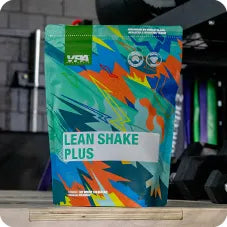Your Cart is Empty
7 Weight Loss Myths
October 09, 2019 3 min read

Myth #1: Eat less and exercise more
Although studies do show that people who change their eating habits and increase their exercise often maintain weight loss, there is more to the weight loss story. There are other factors such as genetics, environment, mental health and food intolerances which play a role in one’s ability to lose weight. Some researchers argue that the common advice to just “count calories” isn’t helpful, because it ignores the many issues, including biology, that contribute to a person’s weight. Researchers argue that rather than focusing on a calories-in versus calories-out equation, more attention should be paid to the overall composition of a person’s diet.
Myth #2: All calories are equal
Calories as far as an energy source they can be looked at as all the same, but the way they interact with your body is not. Consider 300 calories of sugar compared to 300 calories from an avocado, they will react with your body very different. The sugar will be stored as fat if it is not used shortly after being consumed as it is fast-digesting energy, whereas avocado is slow digesting energy so it will fuel your body for hours and is less likely to be stored as fat. Also, fat-digesting sugars will mess with your energy levels and will leave you tried…making it more likely to snack and less likely to exercise.
Myth #3: You need to lose substantial weight to notice health changes
Research shows that with just a 10% loss of weight, people will experience noticeable changes in their blood pressure and blood sugar control while lowering their risk for heart disease and Type 2 diabetes.
Myth #4: There’s a single best diet
The best diet is the one you are most likely to stick to. Only45% of people in the National Weight Control Registry say they lost weight following various diets on their own, and 55% say they used a structured weight-loss program. Dr. Yoni Freedhoff, an obesity expert and the medical director of the Bariatric Medical Institute in Ottawa, starts men and women at his clinic on the same plan, but lets everyone diverge from it. “We have a plan that involves getting enough calories and protein and so forth, but we are not married to it,” he said in a recent TIME cover story on weight loss. “Everyone here is doing things slightly differently.”
Myth #5: We are overweight because we eat too much
Obviously you can not eat all day and lose weight, but there is more to it. High-calorie processed foods and drinks have become a ubiquitous part of the Western diet, and some researchers say weight gain may also be linked to our exposure to chemicals like the bisphenol A (BPA) found in everyday items like canned-food containers and cash-register receipts. We are also becoming more sedintary.
Myth #6: You have to give up alcohol to lose weight
According to New York Times reports, several studies have shown that while heavy drinking is linked to weight gain, people who drink light and moderate amounts of alcohol are not likely to gain weight. Of course, the usual advice remains: everything in moderation. It’s also good to keep in mind that people can react differently to the same foods . For some people, the casual glass of wine won’t have a big effect, but for others it might.
Myth #7: People need more willpower to lose weight
This is a big one…There are many factors—genetic, environmental and physical that play into a person’s weight and ability to move, and there is a growing body of research showing that when people lose weight, biological factors come into play, making it harder for them to keep weight off after it’s gone.
Kevin Hall, a scientist at the National Institutes of Health, has found that when a person loses a substantial amount of weight, their metabolism gets out of whack and their appetite increases proportionally, causing them to eat about 100 calories more for every two pounds lost. While that doesn’t mean it’s impossible to keep weight off in the long term, it does mean that struggling to do so is by no means a reflection of willpower, motivation or work ethic.
Also in Featured

Creatine Capsules vs Powder — Which Is Better for Strength and Performance?
November 06, 2025 6 min read
Read More
Running Gels Explained — What They Are, How They Work, and When to Use Them
November 06, 2025 10 min read
Read More
Why Energy Gels Are a Game-Changer for HYROX Athletes and Functional Fitness Training
October 15, 2025 6 min read
Read More Recent Articles
- Creatine Capsules vs Powder — Which Is Better for Strength and Performance?
- Running Gels Explained — What They Are, How They Work, and When to Use Them
- Why Energy Gels Are a Game-Changer for HYROX Athletes and Functional Fitness Training
- Body Type Diet: How to Eat for Your Ectomorph, Mesomorph or Endomorph Build
- The Best Way to Take Creatine for Maximum Results (2025 Guide)
- Creatine Gummies Scam? What You Need to Know vs Powder
- 10 Proven Whey Protein Benefits (and Why WPI Might Be the Best Option)
- Third-Party Tested Supplements in Australia: Why It Matters More Than Ever
- 7 Best Protein Powders for Weight Loss in Australia (Updated 2025)
- Prebiotic Collagen Protein for Gut Health and Weight Loss: What You Should Know
${{amount}}













